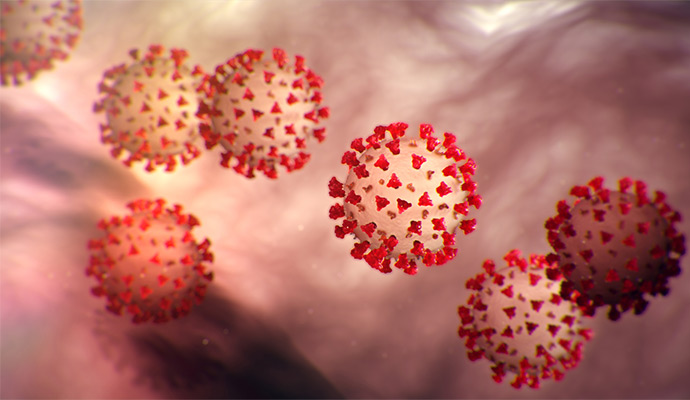Genomic Analysis Finds Genetic Factors Linked to Severe COVID-19
A genomic analysis highlights 13 loci that are connected to developing a severe COVID-19 infection.

Source: CDC
- Through genomic analysis, researchers have discovered 13 loci, or locations in the human genome, that are strongly associated with infection or severe COVID-19. The team of researchers has also identified casual factors such as smoking and high body mass index that led to more serious infections.
As people around the world became infected with COVID-19, scientists questioned the genetic factors that influence how sick a patient gets. While some seem to experience life-threatening symptoms, others experience mild or no symptoms at all.
In order to answer questions regarding genetic factors, a global effort called the COVID-19 Host Genomic Initiative was launched by Andrea Ganna, group leader at the Institute for Molecular Medicine Finland (FIMM), University of Helsinki, and Mark Daly, director of FIMM and institute member at the Broad Institute of MIT and Harvard.
The initiative has grown to become one of the largest collaborations in human genetics. Currently, there are more than 3,300 authors and 61 studies from 25 different countries.
Ben Neale, co-director of the Program in Medical and Population Genetics at the Broad and co-senior author of the study, said that while the vaccine protects against getting the virus, there is still much to be discovered regarding how to treat COVID-19. An effective way to discover treatment is through genetic analysis.
Neale added that improving the COVID-19 treatment approach would also play an important role in defeating the pandemic. With effective treatment, COVID-19 could become an endemic disease, similar to the flu.
"The better we get at treating COVID-19, the better equipped the medical community could be to manage the disease," Neale said in a press release. "If we had a mechanism of treating infection and getting someone out of the hospital, that would radically alter our public health response."
The consortium pooled together clinical and genetic data from almost 50,000 patients who tested positive for COVID-19, and 2 million controls from numerous biobanks, clinical studies, and direct-to-consumer genetic companies such as 23andMe. This allowed scientists to produce statistically robust analyses featuring diverse populations.
Of the 13 loci identified by the team, two had higher frequencies in patients of East Asian or South Asian ancestry than individuals of European ancestry.
"We've been much more successful than past efforts in sampling genetic diversity because we've made a concerted effort to reach out to populations around the world," said Daly in a press release. "I think we still have a long way to go, but we're making very good progress.”
The team pinpointed one of the two loci near the FOXP4 gene, which is linked to lung cancer. “The FOXP4 variant associated with severe COVID-19 increases the gene's expression, suggesting that inhibiting the gene could be a potential therapeutic strategy,” the press release stated.
Scientists also discovered DPP9, a gene involved in lung cancer and pulmonary fibrosis, and TYK2, which is involved in some autoimmune diseases, to be associated with severe COVID-19 were. The team hopes these findings will help them discover useful targets for repurposed drugs.
Additionally, the study will begin to examine what differentiates COVID-19 “long-haulers”, or individuals whose symptoms continue for months, from others.
"We'd like to aim to get a good handful of very concrete therapeutic hypotheses in the next year," Daly said. "Realistically, we will most likely be addressing COVID-19 as a serious health concern for a long time. Any therapeutic that emerges this year, for example from repurposing an existing drug based on clear genetic insights, would have a great impact."
Daly said he was excited by how clear and interpretable the results have been for geneticists thus far. According to Daly, the work from this study could provide a shift in the field of human genetics.
"These discoveries have been really informative and that has made us realize that there's a lot of untapped potential in using genetics to understand and potentially develop therapeutics for infectious disease," Daly said. "I hope this sets an example for how we might bring population genetics approaches to a new set of problems that are especially important in developing parts of the world."
